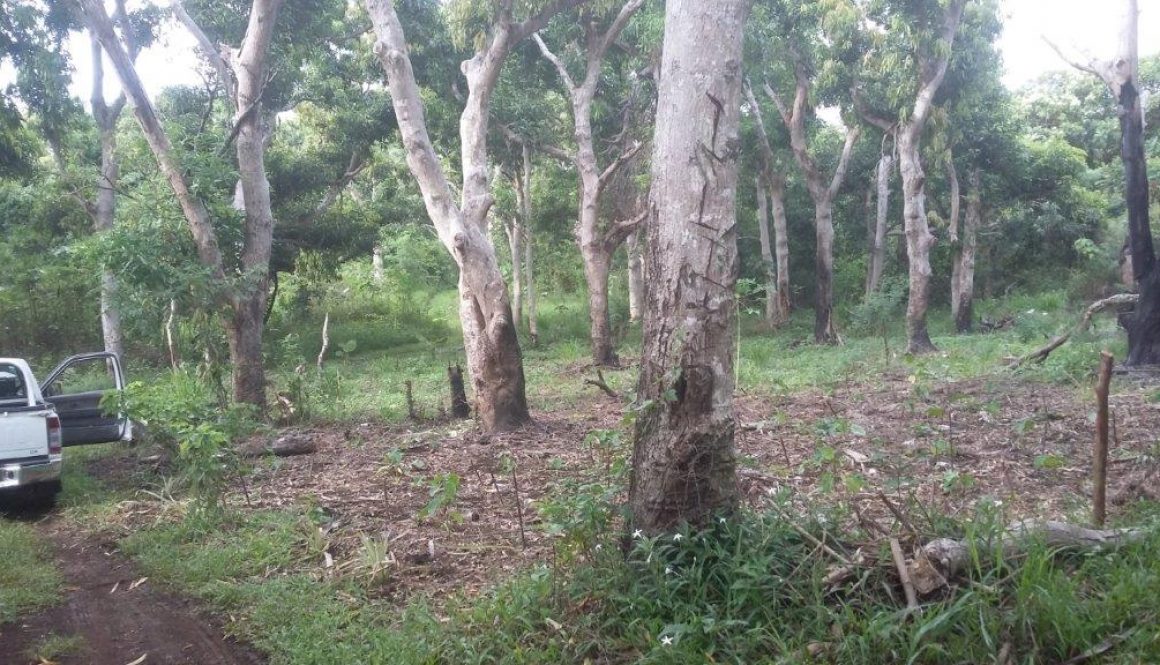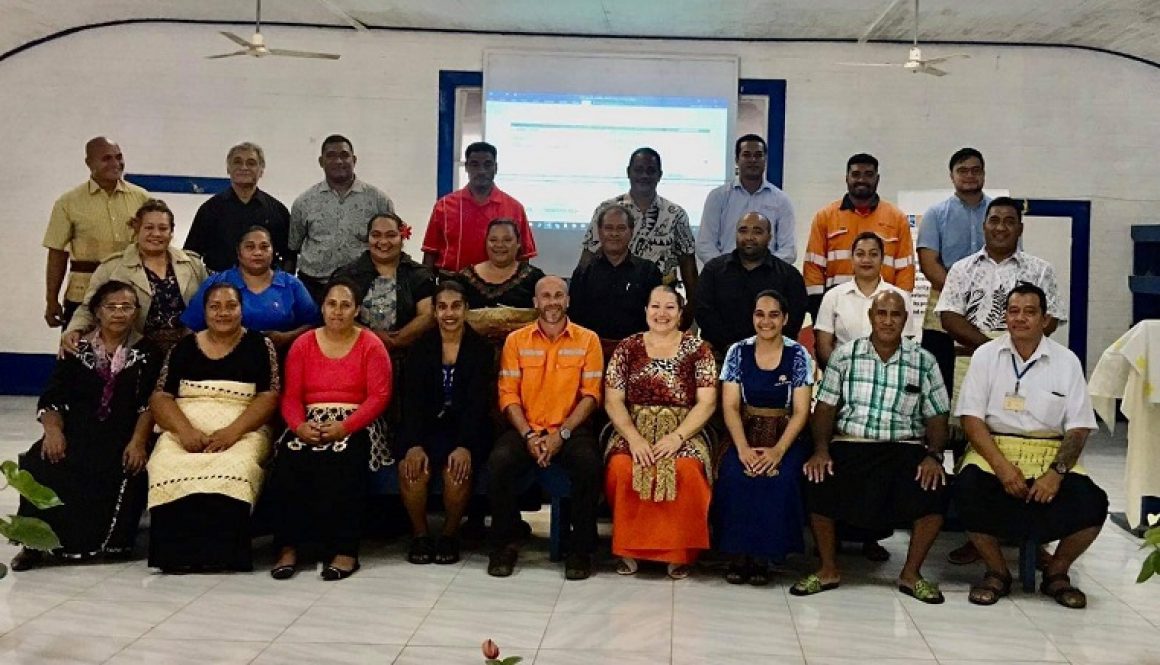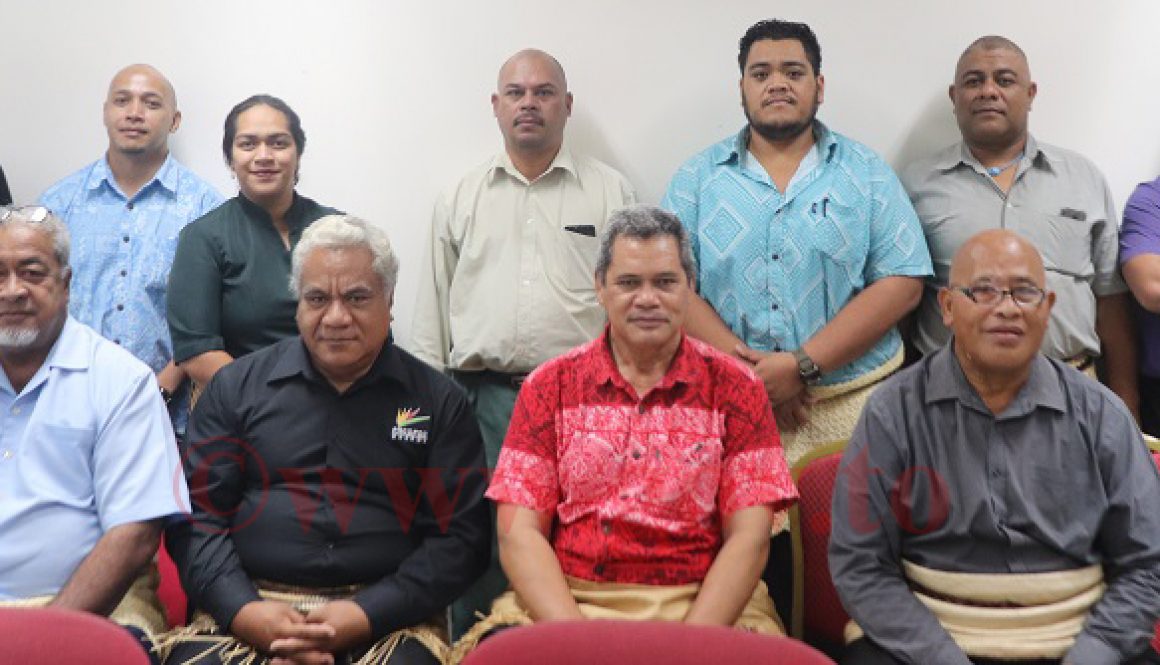TongaEnergyRoadmap
Posts by :
Tonga’s energy efficiency future discussed at workshop this week
20th February, 2020 More than 40 participants representing government departments, private sector and other relevant organisations are taking part in a workshop to discuss the Tonga Energy Efficiency Master Plan in Nuku’alofa this week.
Organised by the Ministry of Meteorology, Energy, Information, Disaster Management, Environment, Climate Change and Communications (MEIDECC) and the Pacific Centre for Renewable Energy and Energy Efficiency (PCREEE), the workshop is an opportunity for stakeholders to have input into the plan before it goes to cabinet for approval.
MEIDECC acting chief executive officer Dr. Tevita Tukunga said it was important that as many people as possible have a say as to how Tonga might be able to achieve the policies and projects suggested in the master plan.
“We want a practical plan which stakeholders are willing to support, commit to and implement, rather than a plan for a plan’s sake,” Dr. Tukunga said.
Among the ideas proposed are improving infrastructure and safety to encourage more people to walk and cycle, improving bus services and other public transport services, and adding energy efficiency requirements to building standards.
PCREEE manager Solomone Fifita said Tonga needs to include energy efficiency in the transport sector in its carbon emission reduction strategies.
“There was excellent discussion today and some good ideas put forward. These will be fleshed out over the next two days.”
The draft Tonga Energy Master Plan was supported by the United Nations Climate Technology Centre and Network (CTCN), an operational arm of the United Nations Framework Convention on Climate Change (UNFCCC) Technology Mechanism.
ENDS
For more information please contact:
MEIDECC acting chief executive officer
Dr. Tevita Tukunga
Email: ttukunga@gmail.com
Or
PCREEE manager Solomone Fifita
Phone : +676 775 0480
Email: Solomonef@spc.int

Side Event at the High-level Political Forum: Innovation to Overcome COVID-19 and Accelerate the Transformative Pathways to Achieve the SDGs, 7 July 2020
The High-level Political Forum in July 2020 under the auspices of the Economic and Social Council (ECOSOC) follows the theme “Accelerated action and transformative pathways: realizing the decade of action and delivery for sustainable development “. The COVID-19 pandemic has thrust the world into turmoil, disrupting the status quo to an extent that has seldom been experienced before. The United Nations Industrial Development Organization (UNIDO), the Vienna Energy Forum, and The World in 2050 (TWI2050) initiative by the International Institute for Applied Systems Analysis (IIASA) are organizing a High-level Political Forum 2020 Side Event on Innovation for the Sustainable Development Goals (SDGs) and a Sustainable Recovery.
Innovation has been the foundation of human and societal development since the dawn of civilization. While it has resulted in enormous benefits for human wellbeing, the unconstrained development of innovation has placed societies and ecosystems at risk. Technology’s disassociation with societal, institutional and cultural-related innovation has, to this day, affected its efficiency in achieving the Sustainable Development Goals.
While the current COVID-19 pandemic threatens the achievement of the SDGs, it also disrupts the global status quo and, thus, provides an opportunity to create sustainable societies for all and mitigate environmental impact at all scales. When properly directed, economic stimulus packages have the potential to ignite and leverage innovation in technology, behaviors, and institutions to guide humanity towards sustainability.
During this session, IIASA will launch its third TWI2050 report “Innovation for Sustainability: Patwhays to an efficient post-pandemic future.” The report focuses on accelerating the deployment and diffusion of innovations to achieve a transformation towards the SDGs, providing a broad framing for the event, followed by a sector example.
UNIDO has a long track-record of supporting sustainable innovation and will present its action-oriented expertise across regions. The Vienna Energy Forum — co-organized by UNIDO, IIASA and the Austrian Government — has gathered thinkers and practitioners from all over the world to discuss practical solutions to sustainable development challenges. In this respect, the VEF has been instrumental in the formulation of the energy-related targets embedded in SDG7 (affordable and clean energy), and will continue to serve as a platform to meet salient energy challenges moving forward.
The event will also highlight the Global Network of Regional Sustainable Energy Centres (GN-SEC) as an innovative south-south and triangular partnership to accelerate the energy and climate transformation in Least Developed Countries (LDCs) and Small Island Developing States (SIDS). For example, the Caribbean Centre for Renewable Energy and Energy Efficiency (CCREEE) has published COVID-19 recommendations for energy and climate policy makers in the Caribbean Community (CARICOM).
During this HLPF side event, scientists, policymakers and UN experts will engage in a discussion with the audience on how to innovatively rebuild from the COVID-19 induced crisis.
Date & Time: July 7, 14:00-15:00
Registration is required to attend this virtual event. Please register below. You will then receive the meeting link and password.
Opening remarks (5min) Johan Rockstroem, Potsdam Institute for Climate Impact Research, TWI2050 author
Presentations (7min each):
•Launch of TWI2050 report “Innovations for Sustainability”, Nebojsa Nakicenovic, IIASA, TWI2050 author
•Innovations in the Health Sector, Kristie Ebi, University of Washington, TWI2050 author (invited)
•Accelerating Recovery through Sustainable Technology Innovation and Entrepreneurship Support, Tareq Emtairah, UNIDO
•Achieving the SDGs, Jeff Sachs, SDSN, TWI2050 author (invited)
Discussion with the audience
Organizers and co-organizers:
•United Nations Industrial Development Organization (UNIDO)
•International Institute for Applied Systems Analysis (IIASA)
Further information: https://www.viennaenergyforum.org/hlpf-2020-side-event

Promoting Sustainable Energy Business Opportunities in Ha’apai and Vava’u, Kingdom of Tonga
11th June, 2020 Tonga has set, amongst other targets, an ambitious target to generate 50% of the country’s electricity from renewable energy resources by 2020. Several initiatives are currently taking place in Tonga in pursuit of these targets.
The Asian Development Bank and Australia-funded Outer Island Renewable Energy Project (OIREP) is, among other things, providing 24 hours electricity supply to Nomuka, Ha’afeva, ‘Uiha and Ha’ano in the Ha’apai Group and also the main island of Vava’u. The Pacific Community’s (SPC) Pacific Centre for Renewable Energy and Energy Efficiency (PCREEE) has a Sustainable Energy Entrepreneurship Facility (PSEEF) to assist business startups and co-finance renewable energy and energy efficiency projects. The EU-funded Pacific Technical and Vocational Education and Training (PacTVET) program is currently working to introduce national qualifications on sustainable energy in Tonga.
More than 50 participants benefitted from a series of training workshops conducted on 20 May – 1 June aimed at raising their awareness on possible small-scale business opportunities and the productive utilization of renewable energy in their local communities. The training also assisted participants to prepare funding and business proposals for business startups and improving their business skills to effectively look after their electrification programme and small businesses.
“We want to ensure these remote communities fully benefit from their more reliable, cleaner and safer supply of electricity by productively using the opportunity to start their own small businesses to help their families and communities. We also want them to be able to sustainably manage their 24 hours electricity supply”, said Hikaione Loumoli, the OIREP Safeguard and Gender Officer.
“The outer islands play a key role in the supply of reef fish and handcrafts to the Nuku’alofa market. People continue to trade their local chickens, pigs, root crops and vegetables with those who have migrated to the main island. With the 24 hours power supply and business skills, the PCREEE’s Sustainable Energy Entrepreneurship Facility (PSEEF) can also contribute financially to assist the outer islands residents to contribute more to Tonga’s economy”, said Sione Misi of the PCREEE.
“There are only two major incomes sources here in the islands which are from the women’s handicraft making and men’s fishing. There is a high demand for reliable 24 hours supply of electricity for freezers to store their catch and also to produce ice blocks. This idea of clean and affordable renewable energy electricity will be very helpful especially in starting some small business for some individuals, women’s group or the communities,” said Esau Tupou Finau, one of the participants at Nomuka.
“This training opportunity has given us more confidence in the installation, maintenance and designing and allowing us to buy solar and other energy efficient appliances to install in our houses, not only for lighting but we can start thinking of business ideas that we can generate income from such as solar freezer, sewing, wood carving, solar lights to our group of women’s groups which rely on weaving mats for their incomes,” said Saia Langi, town officer of Muitoa.
The workshops were jointly conducted by the OIREP and the PCREEE and supported by the PacTVET and the Tonga Power Limited.
The support of Ms. Lucy Fa’anunu, MEIDECC OIC in Vava’u and her staff in fully acknowledged and appreciated for their dedication and contribution to making the workshop a success.


NEXSTEP backs Tonga’s effort to keep better track of its Energy targets
12th June, 2020 The Government of Tonga through the Department of Energy (of the Ministry of MEIDECC) in conjunction with UN ESCAP hosted an online inception workshop on National SDG7 Roadmap for Tonga using the National Expert SDG Tool for Energy Planning (NEXSTEP).
The Department of Energy under the Ministry of MEIDECC in collaboration with UN-ESCAP have been developing a national energy transitional planning tool NEXSTEP (National Expert SDG Tool for Energy Planning). The tool is to assist in making informed decisions in transitioning the energy sector in a way that supports the achievement of the NDCs with particular attention to SDG7.
In his opening remarks Dr. Tevita Tukunga, Director of Energy, said this tool would enable policymakers to make more informed policy decisions to support the achievement of the SDG7 and national emission reduction targets.
“As a national focus topic, Tonga has decided to work on improving the data gathering, analysis and tracking capacity for achieving SDG7, Nationally Determine Contribution (NDC), Tonga Energy Roadmap (TERM), Tonga Energy Efficiency Master Plan, and other energy related national targets.”
Mr. Hongpeng Liu, Director, Energy Division, UN ESCAP in his co-opening remarks expresses how ESCAP has prioritized its support to small island countries like Tonga where the challenges to develop a national SDG7 roadmap, that also aims to improve the resilience and security of the energy sector, is far greater than other countries.

“ESCAP recognizes that roadmap development should be a country-led process where countries take the full ownership of their roadmaps instead of being developed by external parties. The roadmap development process needs to involve all stakeholders who have a link to either energy demand or supply. It should be harmonized and coordinated with the existing national energy strategies and plans.”
With the NEXSTEP’s integrated system approach, Tonga will be able to know exactly where it stands with its Energy development, its current status and most importantly can project its future needs given its Energy vision & targets.
Attending the inception workshop, the CEO of Tonga Statistics Department, Dr. Viliami Fifita and other senior representatives from other line Ministries and relevant stakeholders.
A follow up capacity building will held later once the modelling and the analysis of the tool is completed.


